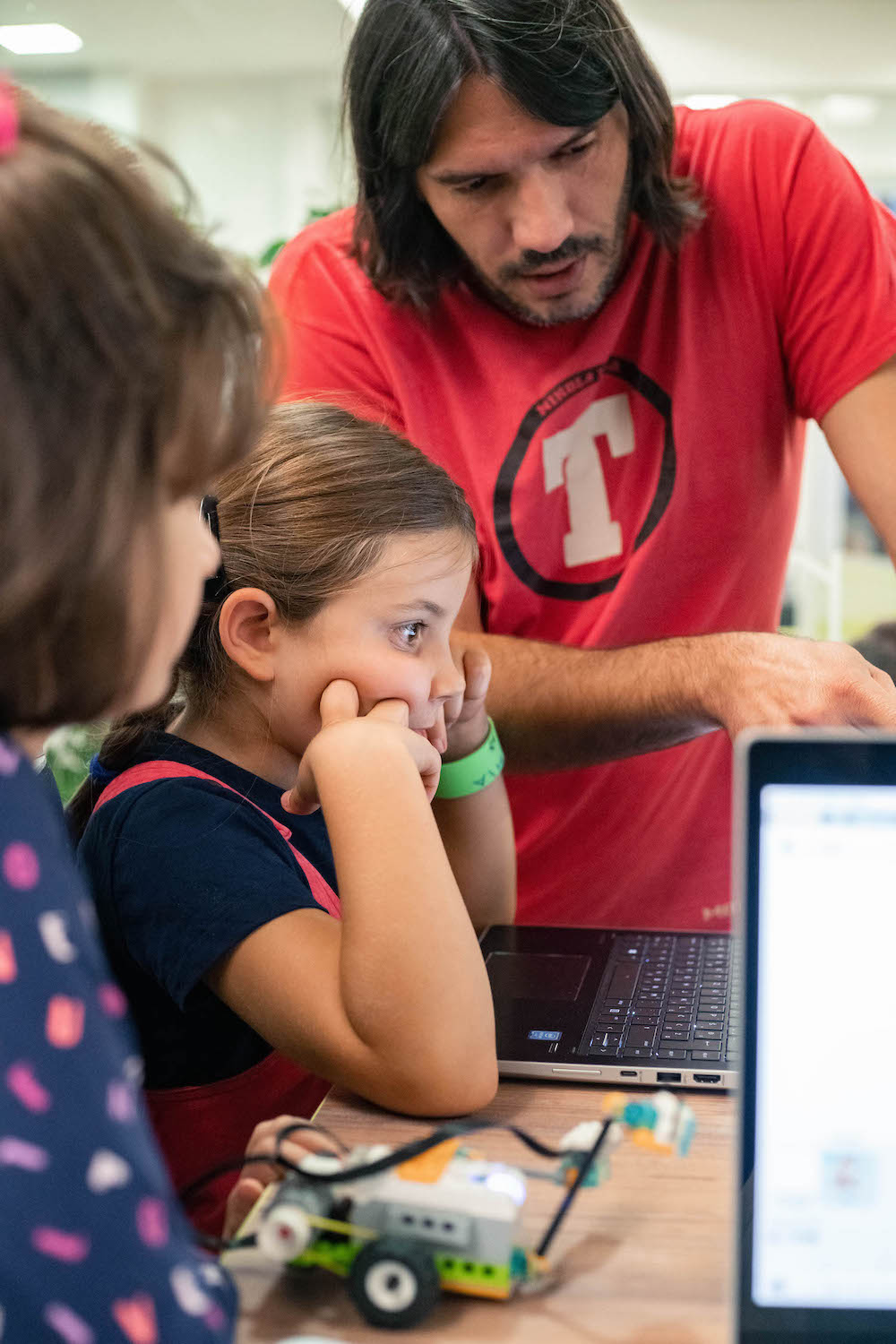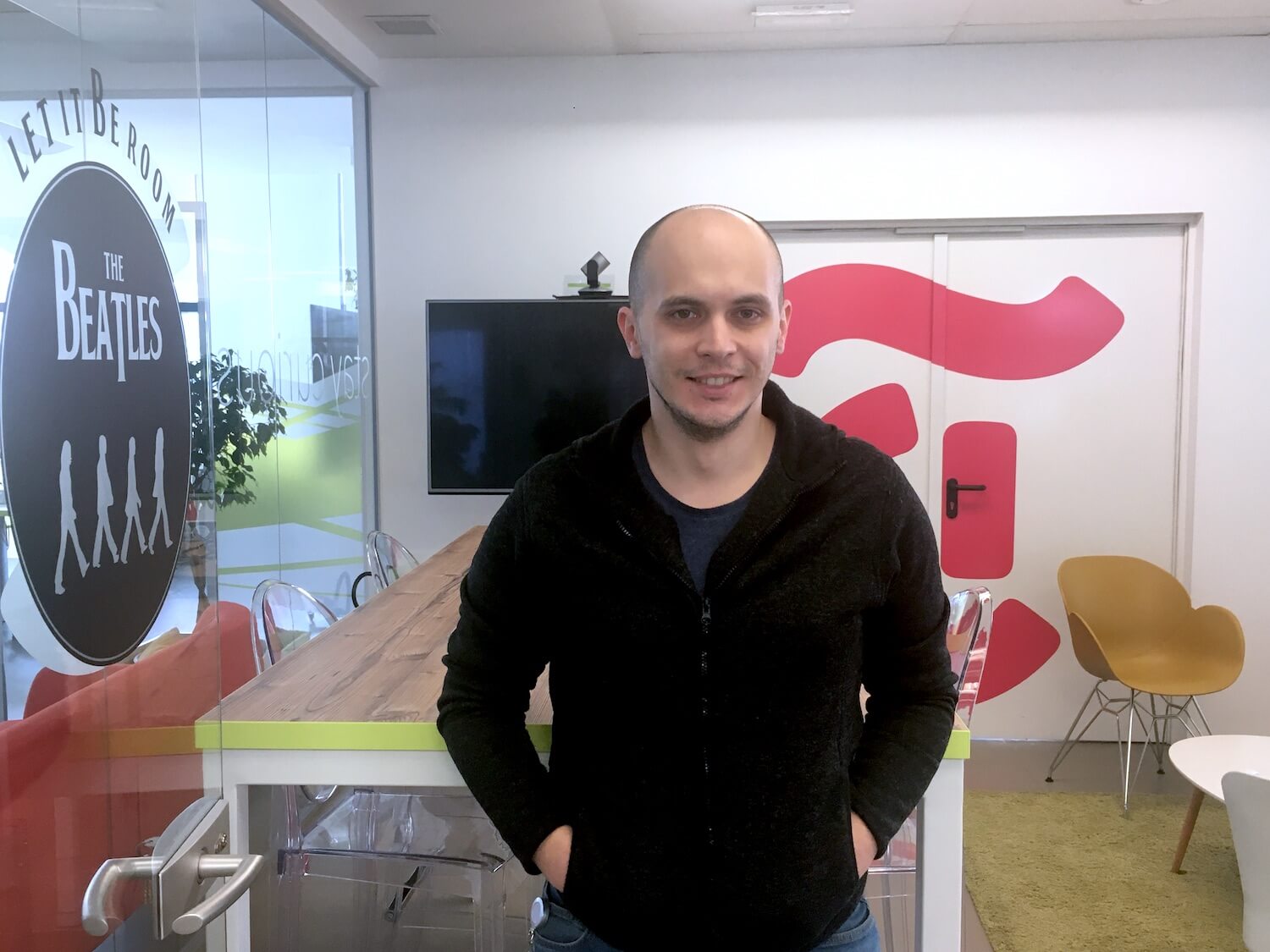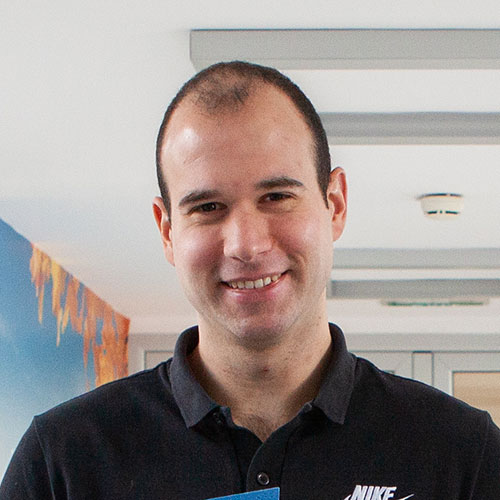How to become a software engineer according to Interventure’s all-star teams
Posted by InterVenture on December 29, 2020If you’re wondering how to become a software engineer, you’re definitely not alone. The career of a software engineer is attractive to many, and not just because it’s well paid.
Sure, the job outlook is amazing, but choosing this profession also allows you to work in many different areas and across various industries. Besides, the technological advancements do not show any signs of slowing down. If you try hard to become a part of this dynamic landscape, you’ll surely encounter opportunities to innovate and make an impact. This is something that’s often perceived as an exciting challenge for those driven to become software engineers.
Alas, simply wanting to do something is not enough. It can be confusing how to get from A to B when you’re at the beginning of your career path or looking to switch professions.
There’s a Catch-22 when it comes to young people who are just stepping into their working lives: you need experience to get a job, but you can’t get a job without experience. We’ve all been there and it can get very frustrating.
This is why we wanted to gather useful insights about how to become a software engineer directly from our all-star team members. Meet Predrag Marić, Milan Živić, Damir Alibegović, and Stefan Vranković.
Lesson #1: Education is important
Have you heard about Julius Yego, the javelin thrower who won gold at the World Championships? Did you know that he learned how to throw by watching YouTube videos? It’s true. Yego’s case shows that, when you have iron will and such a strong inner drive to accomplish something, nothing can stand in your way – not even the fact that you don’t have a professional coach.
With today’s plethora of online resources, active communities, MOOCs, and various alternative learning pathways, it’s almost impossible to find a valid excuse for not being able to master some skill or learn something new.
But does this mean that college education has become obsolete? Absolutely not. It’s not that you cannot succeed at becoming a software engineer without a degree in computer science. Rather it’s about developing your mind and vital skills in a learning environment that keeps you focused and prepares you for the future.
Predrag Marić graduated from the Faculty of Organizational Sciences. He believes that formal education matters because of the depth of knowledge students get by attending university. However, he noticed that there is a shift away from formal to informal education:

“It looks like the world is moving away from formal education requirements. I read that Google is preparing to launch 6-month courses that they will treat equally to the formal diploma. I’m really curious to see how that will work out.”
Milan Živić has the same educational background as Predrag, but he underlines the importance of taking initiative and being proactive in terms of putting the knowledge to use:
“Higher education will definitely give you a bit of a background and push in the right direction, but that’s mostly it. What it’s really good for is that it tends to change your mindset – you’re not passively soaking up information anymore, you’re actively looking into ways to increase your knowledge of the given subject, and gaining that skill alone will set you lightyears ahead.”
Both Stefan Vranković and Damir Alibegović agree that education is crucial for later professional success. Damir has graduated from School of Electrical and Computer Engineering of Applied Studies (VISER) and Faculty of Computer Science (RAF), while Stefan finished the School of Electrical Engineering.
Studying any type of scientific field can prepare you for a software engineering career path. It disciplines the mind and helps you develop logical thinking skills.
Lesson #2: Being a software engineer requires lifelong learning
Now that we covered the part about benefits of formal education, it’s a good idea to touch upon the importance of committing to lifelong learning. The software engineering industry is a high-paced one, which means professionals need to be light on their feet and willing to invest an effort to master new skills.
Regardless of the myth about engineers being introverts and working isolated from everyone, they do need to work on both soft and technical skills:
“It’s highly likely that as a software engineer you’ll work in a team and I would always prefer a good cultural fit over a rock star developer with an attitude in my team. On a short-term, you may get great results with the latter, but in the long run the former is a much better choice.”, says Predrag.
Milan thinks the same:

“As a software engineer, your job is to solve real world business problems and you can’t do it alone, so you’ll definitely need to work on your communication skills in order to successfully work with your team members, managers and your stakeholders.”
Beyond soft skills, engineers must continue learning to prevent falling into a skill rot, Predrag explained to us:
“The IT industry is changing rapidly. Software companies and engineers are required to follow the latest changes so they can be concurrent on the market. On the other hand, the IT industry and also subdomains of it, such as the Backend domain, are very huge and my experience tells me that, the more I learn and improve my knowledge – the less I know. That means that each area and the new skill I learn opens new “pandora boxes” and shows me some new technologies and skills I wasn’t aware of before.”
Damir pointed out that, in addition to the above-mentioned, engineers also need to develop business awareness, build time management skills, work on confident decision making, and more.
Lesson #3: Don’t do it for the money
It is a well known fact that software engineers have high salaries, which is directly connected to the supply and demand law of the market. But should this be your primary motivation for becoming a software engineer? According to Stefan, this is one of the most common misconceptions people have about software engineers:
“People think that being a software developer is a straightforward, boring and money-making profession. I say – do not go for the money. Look for the job which is going to provide you knowledge and hard work. Money will come with it.”
The truth is, choosing a profession is a delicate act of balance between finding something that will make you happy while also covering for existential needs. Prioritizing financial incentive without having any genuine interest in computer sciences is likely to result in a disaster.
So, what would be the healthy drives for pursuing the career of a software engineer?
For Milan, it was the love towards video games:
“My dad bought our first i486 PC way back when I was 2 years old. When I got a bit older, I couldn’t get enough of various DOS hits like Commander Keen. My gaming interests grew over the years until the point that I’ve actively wanted to become a game developer. As a byproduct of my stint as a game programmer, I’ve developed solid programming chops and a passion for problem solving, so that’s what got me further into the software industry.”
Sometimes, it can be the love towards solving problems, as Stefan shared with us:
“Since I was a kid, I was very attracted to solving interesting mathematical problems. That attraction led me to the beautiful world of algorithms and it was natural to decide to choose this profession.”

Of course, there can be a number of reasons. Just like with any other professions, there has to be some level of curiosity for the field you plan to work in for the rest of your life. If you’re not that into computers and electronics, it’s not likely that you’ll be happy or particularly successful in software engineering.
Lesson #4: Learn what the profession is about before pursuing it
We asked our all-star software engineers to share the common misconceptions people have about software engineering and got some pretty amusing answers. Then we asked them to share what their typical work day actually looks like. See the table below. Are you guilty for believing some of the things from the left column?
| Expectations / misconceptions | Reality |
| Developers sit in the corner for an entire day and write endless lines of code If you like video games, you will definitely like software engineering Developers are able to work from beaches or anywhere else because all they need is a laptop Being a developer is boring Developers = IT folks who can fix your PC with their eyes closed It’s easy to become a software engineer and once “you’re in”, you’re golden | Developers attend sprints and other meetings, and participate in cross-team collaboration Developers don’t just write code, but they also handle debugging, research tools and technologies, read and create documentation Developers are not robots and they need a stable work environment to focus (just like other professions) They tend to have a very dynamic day filled with challenging and diverse tasks Developers support other colleagues during their onboarding |
Lesson #5: The universe cannot deny you forever
If you’re determined to become a software engineer, you need to understand that success doesn’t come overnight. The good news is, getting the first job is not as hard as it used to be with different internship programs and junior positions. Keeping an open mind is the key, says Milan:
“You mustn’t be afraid to ask questions. Prepare yourself for the lifetime of learning new things – if you’re into that sort of thing, it’s going to be a wild ride.”
Stefan pointed out that young people can always rely on seniors to guide them through while they invest in personal growth and professional development. He has a pretty good advice for you:
“Read great books, spend time investigating cool new stuff on the internet, ask good programmers for advice, look for the best internship, fight for the knowledge and code as much as you can.”
Damir underlined the value of patience:
“It takes time to learn the important concepts. Remember that getting a degree in CS usually takes 4 years.”

To conclude: the universe cannot deny you forever. But, as Predrag says – If you’re forcing it, it probably won’t work out. Enjoy the path to becoming a software engineer and be kind to yourself. Nobody knows everything. In addition, progress doesn’t always feel tangible, but when you stop and look how far you’ve come – it’s a whole different story.
We hope you enjoyed reading about the hands-on experience of InterVenture’s team members. to discover how you can jumpstart your career. Feel free to snoop around our blog to learn more or explore our software engineering community.